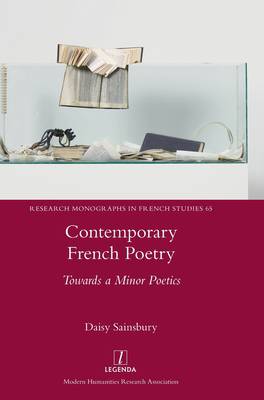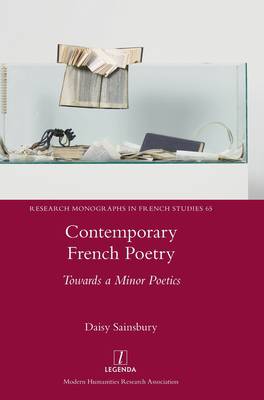
- Retrait gratuit dans votre magasin Club
- 7.000.000 titres dans notre catalogue
- Payer en toute sécurité
- Toujours un magasin près de chez vous
- Retrait gratuit dans votre magasin Club
- 7.000.0000 titres dans notre catalogue
- Payer en toute sécurité
- Toujours un magasin près de chez vous
Description
Over the last forty years, contemporary French poetry has been living in a state of crisis. Pronounced dead - or worse, irrelevant - it has sought to reassert its value, define its current specificity, and delineate its difference from the poetic practices of the past. But what are the defining contours of poetry today, given the sheer variety of practices that make up the contemporary field? Drawing on Gilles Deleuze and Félix Guattari's discussion of minor literature, which explores the relationship between literature, language and power, Daisy Sainsbury argues that one unifying feature is the presence of a 'minor poetics'. Through close readings of three important poets - Dominique Fourcade, Olivier Cadiot and Christophe Tarkos - she examines how these three successive generations of linguistically experimental poets disrupt both literary and non-literary discourses, making the major minor, and redefining the political potential of poetic language in the process.
Spécifications
Parties prenantes
- Auteur(s) :
- Editeur:
Contenu
- Nombre de pages :
- 202
- Langue:
- Anglais
- Collection :
- Tome:
- n° 65
Caractéristiques
- EAN:
- 9781781888421
- Date de parution :
- 19-07-21
- Format:
- Livre relié
- Format numérique:
- Genaaid
- Dimensions :
- 170 mm x 244 mm
- Poids :
- 521 g

Les avis
Nous publions uniquement les avis qui respectent les conditions requises. Consultez nos conditions pour les avis.






